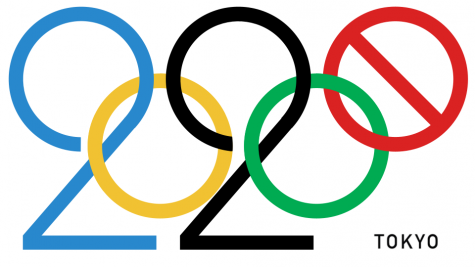Uncertainty surrounds postponed Tokyo Olympics
February 23, 2021

COVID-19 is responsible for the cancellation of many events, and the Olympic Games is no exception. In April of 2020, Olympic officials made the call to postpone the games until the next year, setting the date for July 23, 2021 to August 8. The dates are exactly one year after the original dates for 2020, which provides little disruption to international sport’s schedules. There will also be no change to the athletes who qualified for the events.
The challenge with hosting the Olympics this year is transporting the 15,490 athletes from 206 different countries to Tokyo safely. Not to mention the coaches, sponsors and journalists, all of whom play a significant role in the production and execution of the games.
Although Japan has suffered only 2,700 deaths, which seems minuscule to the United States’ 400,000 and counting, Japan has kept their borders closed since the start of this pandemic and has imposed a strict mask mandate. Japan is also not planning to receive productions of the vaccine to pass out until March. This means, realistically, COVID-19 will still be a huge presence in the 2020 Olympics.
Many athletes are beginning to question whether it is worth putting the lives of themselves and many others at risk for the games. Although it is not essential work, not having the Olympics would mean extreme losses for Japan. The cost of just postponing for one year was worth 2.8 billion dollars, not to mention the 12.6 billion dollars spent to build the facilities, training, and all the other factors last year.
The Olympics also cannot be postponed again for many reasons. The 2022 Beijing Winter Olympics will be happening next year beginning in January, and there is a large rivalry between the two cities. If Japan cancels, it symbolizes that Beijing won. Also, the athletes have been preparing heavily for a year, and most athletes could not sustain another year of such hard preparation.
On the official Olympic website, the Governor of Tokyo, Koike Yuriko, made a statement about the games. “Since we now have concrete new dates to aim for, the Tokyo Metropolitan Government will commit all its resources, and work closely with the Tokyo 2020 Organising Committee, the national government and other stakeholders to fully prepare for the delivery of the olympic games that are safe and secure,” Yuriko said.
Along with Yuriko, the International Olympic Committee President Thomas Bach, and the International Paralympic Committee President Andrew Parsons agree that the Olympics will happen. There are many cautionary steps that will be taken to make sure the athletes, journalists and staff will be able to compete safely, but there has been no announcements about what the steps will be.


